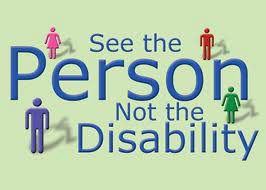
Communication and clarity have nothing in common.
We are compelled to correct our speech and refine our syntax and arguments in the name of communication and understanding,
and this is a joke played at our expense.
There is no such thing as clear communication.
[C.ccaaa.ccc. you hear me?
Hhh---hhhave you ever heard me?]
We have lashed ‘communication’ to ‘understanding’ to the notion of exchanging ideas that are locked in our heads. We frantically heave lines to each others’ minds like San Fransican street-car wires—a society teetered as/at/on the crisscross of nerves.
(what we call)
“Communication” is born of nervous fears of skull-shaped-soundproof-rooms.
Of wires sliced and lost messages. Of no wires at all.
We fret, hanging much on communication but giving it so little.
But what if
Communication is a public, a compost of voices to make meanings, plural, together.
Meanings that swell between, that pool (and thrash) within shared time.
What if
Communication is a string of overlapped misunderstandings,
a sagged body of splintered meanings and voices
that we cobble together each moment limping and crippled along.
It is both invitation and threat
and we so often choose the latter.
Stand up straight!
Get me the brace!
We’re late—where the fuck is the body double?
We play dress-up, pretending communication is a normal body: a non-disabled body that stands straight and walks on its own, thank you very much; a male and virile body; a straight body never veering from its course; a respectable white body that can be trusted to deliver messages. When we’re feeling our best, communication sheds its body and becomes a direct link between minds, a psychic postal man, a Vulcan mind-meld, telepathy.
Telepathy is a dream invented circa 1880
by white bourgeois men
isolated and afraid
of the sin
of voices playing in the dirt.
I think we should be concerned that communication has become a technique.
[Ddd.do. yyy.yyoou. hear me?]
We now think communication is a problem to be solved
through clarity, and if need be, sing-song therapy
If only we could understand each other!
If only stutterers could speak clearly and take their part in the world!
while never realizing that
Clarity is a technique of productivity.
Fluency is a technology of bureaucracy.
Understanding is a wink and a nudge and every back-room deal.
Those in the know call “effective communication” a “basic human right”
to be made available and accessible to all.
Effective for who, I want to know.
“Clear communication” and “understanding” will never mend our problems nor will it help us live together. It will never lead to jjj..Uustice nor break apart ableism, racism, sexism, transphobia, nor poverty. The master’s tools, Audre Lordre reminds us, will never never dis—never dismantle the ma-ma-aster’s house. Clear and “effective” communication may make dysfluent speakers better adjusted, more normal, productive, and efficient cogs in the ffFFFff--- FfffffFFF… in FffflFLuent machine of (late) liberal-capitalism, but will never create justice.
dd.Ddo you have e—ars to h--hear ? to Fffffffffffffffeel and touch? To ?
Communication is the is the pract- is the practice of is the ppract. ------ splintered –m-m-m-m-m-mean –is the practise oof- ings and vvvoices cob-b-b-b
bbb
b------
led to-
tgether
as we
we-w-w-we
as we limp
limp and limp limp ---
and cr--
as
we wel liimp and Cccci---pple along
together. It is a p..pppractice—a shared, p.pppar---- ---- aartial, and imPUre effort—an art, an ethic, a way of llliivving ccccrip
living ww-ww-ww--ith others.
-Josh

 RSS Feed
RSS Feed
